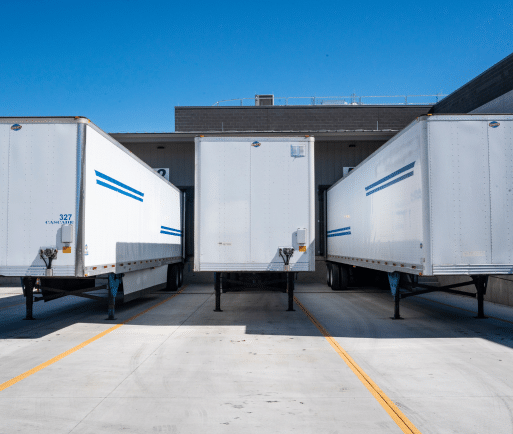What are Power-Only Loads?
Melton Logistics – 05/29/2025
In trucking, efficiency is everything, and power-only shipping is an effective option that keeps freight moving without needing to own or rent extra trailers. If you’ve heard the term but aren’t quite sure what it means, this quick guide breaks it all down.
What Is a Power-Only Load?
A power-only load refers to a freight arrangement in which a carrier provides just the truck and driver, while the trailer is supplied by the shipper, freight broker, or third-party. In short, the carrier brings the “power” (truck and driver), and the trailer is already preloaded and ready to be hauled.
How Does Power-Only Shipping Work?
Power-only shipping operates on a streamlined, plug-and-play model. Here’s how it typically works:
- Trailer Provision: The shipper, 3PL, or broker provides the trailer. This could be a dry van, flatbed, refrigerated unit, or even a specialized trailer depending on the freight.
- Load Prepping: Freight is loaded onto the trailer at the shipper’s facility, often in advance of the pickup time. This reduces driver’s waiting times and enhances scheduling flexibility.
- Load Pick Up: A carrier is contracted to provide a tractor and driver who will hook up to the trailer and haul it to the destination.
Many power-only loads operate under drop-and-hook setups, allowing the carrier to drop an empty trailer and pick up a loaded one, increasing round-trip efficiency. Carriers might be contracted for single hauls or extended runs involving multiple trailer moves.
This setup typically eliminates the need for a carrier to maintain a trailer fleet, allowing for more agile operation, especially in peak seasons or during capacity crunches.
This method can also be used by carriers that maintain their own trailers and leave them with shippers that they have set load contracts with, providing the shipper the flexibility to load freight at their pace.
What Industries Benefit from Power-Only Shipping?
Power-only shipping provides immense value across a variety of sectors. Key industries include:
- Retail & E-commerce
- Manufacturing
- Event & Entertainment Management
- Commercial Construction & Energy
- Dedicated Fleets & Private Carriers:
During high-demand periods, power-only shipping helps to scale quickly without relying on trailer availability from carriers. Companies that manage their own trailers for Just-In-Time (JIT) schedules find power-only ideal for maintaining control over their supply chain.

When Should You Utilize Power-Only Shipping?
Power-only shipping is not a one-size-fits-all solution, but it is particularly useful in these scenarios:
- Trailer Pooling: When you maintain or lease a pool of trailers that need repositioning or delivery to different sites.
- Scalability Needs: During seasonal spikes, power-only lets you quickly expand capacity without the capital expenditure of acquiring new tractors.
- Drop-and-Hook Efficiency: To minimize dwell time and boost productivity at the dock, drop-and-hook power-only models streamline operations.
- Freight Network Optimization: If you’re running a multi-stop network or dedicated lanes with consistent volume, power-only adds flexibility while lowering costs.
- Driver Shortages or Equipment Gaps: Need to move freight but lack available tractors? Power-only lets you plug in available power units from a trusted carrier base.
Power-only is a smart way to stay flexible, especially when you’ve already got trailers ready to roll. It’s quick, efficient, and a great option when you’re looking to keep freight moving without adding more equipment to your fleet. By understanding when and how to use power-only loads, anyone can better navigate capacity challenges, reduce waiting time, and improve asset utilization.
Learn how Melton Logistics can transform your supply chain by contacting us today.
